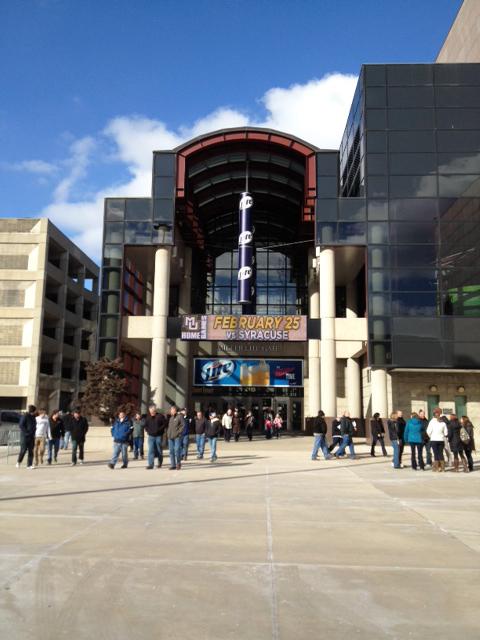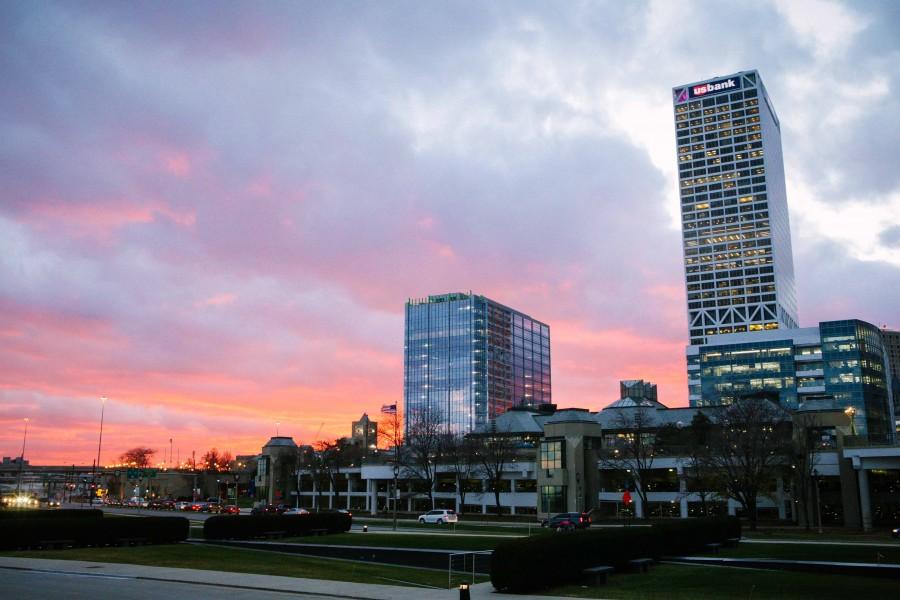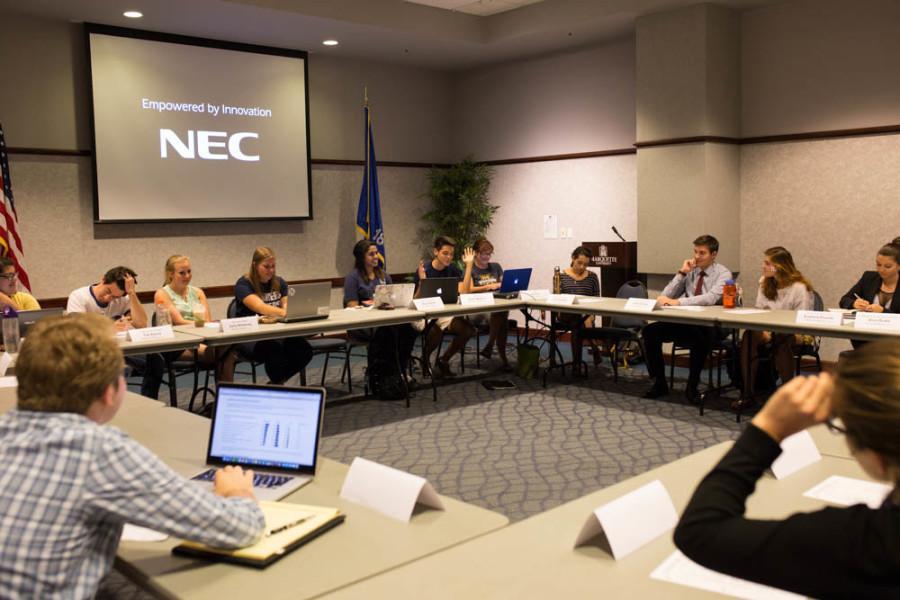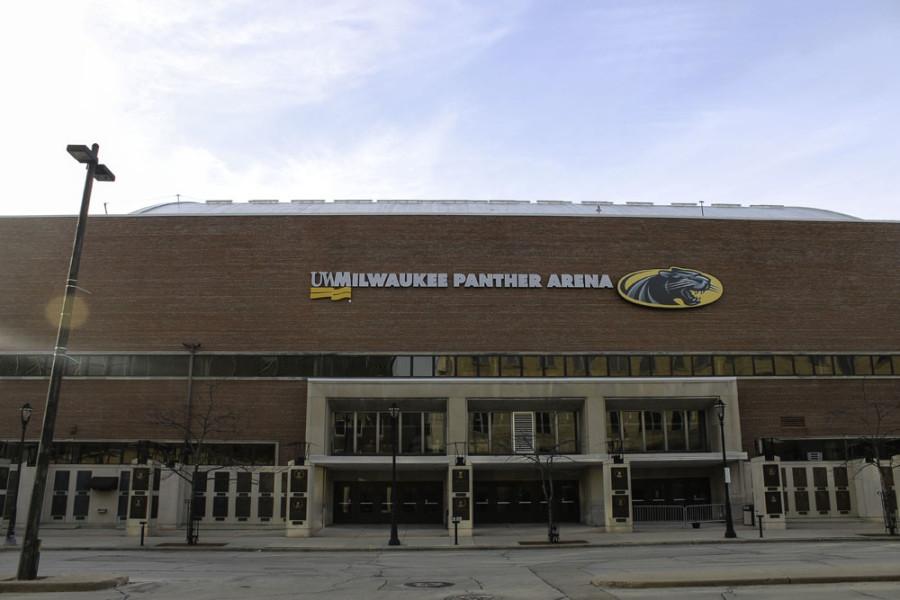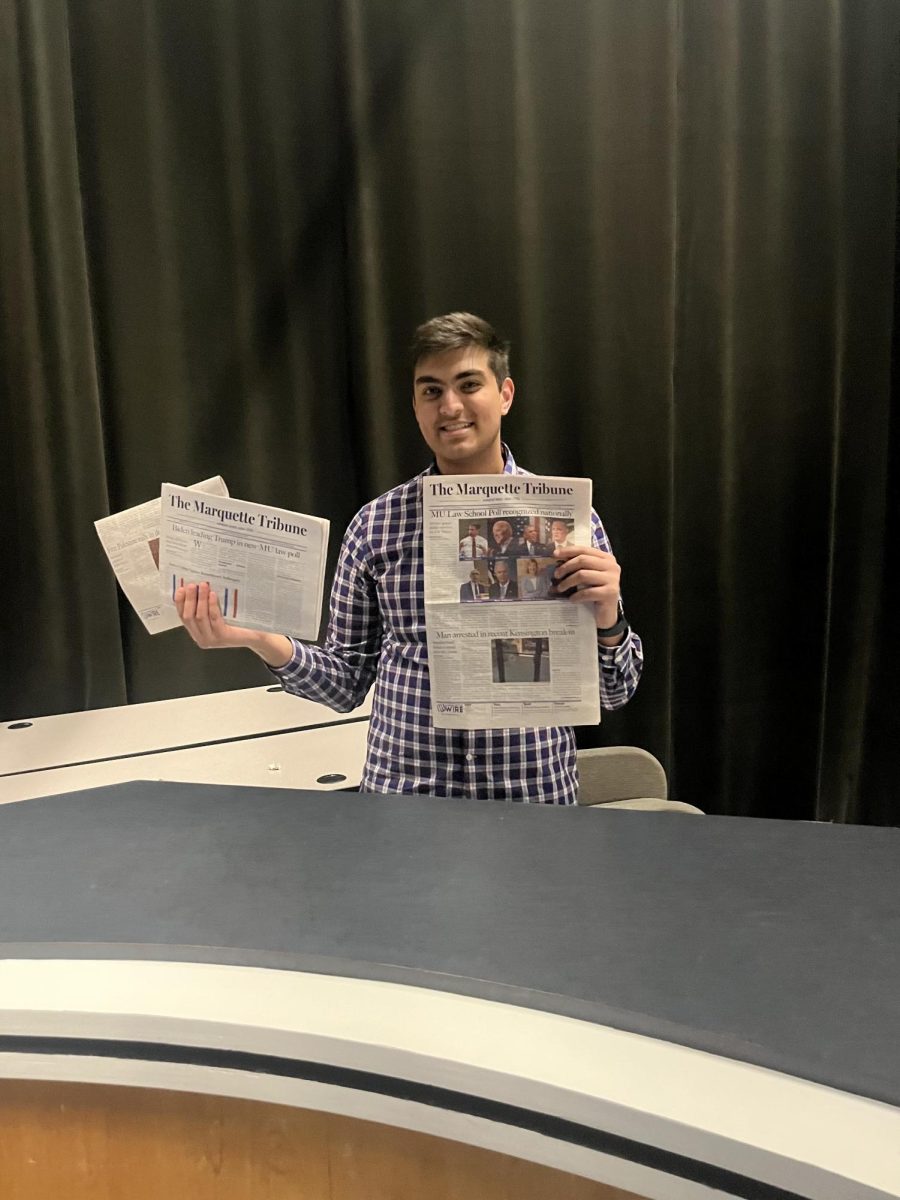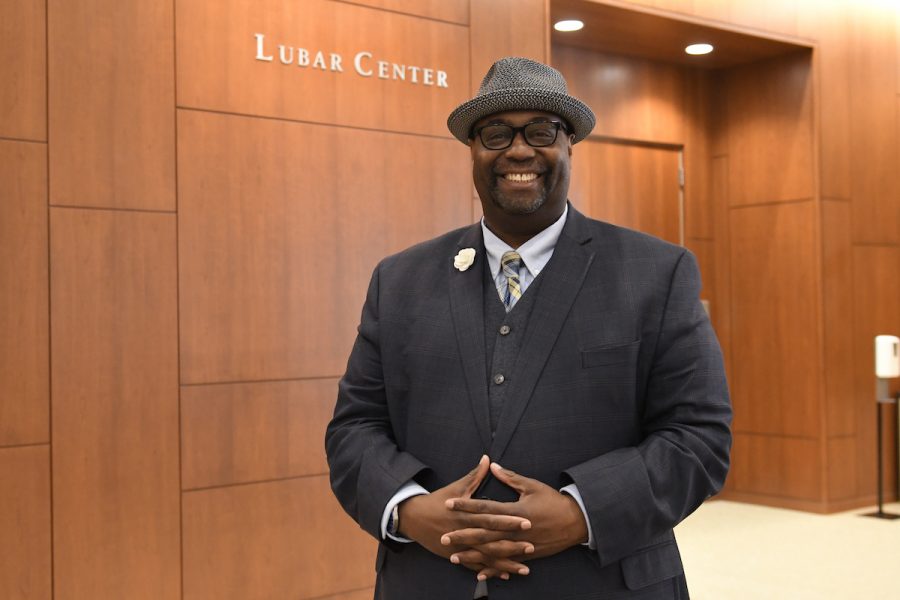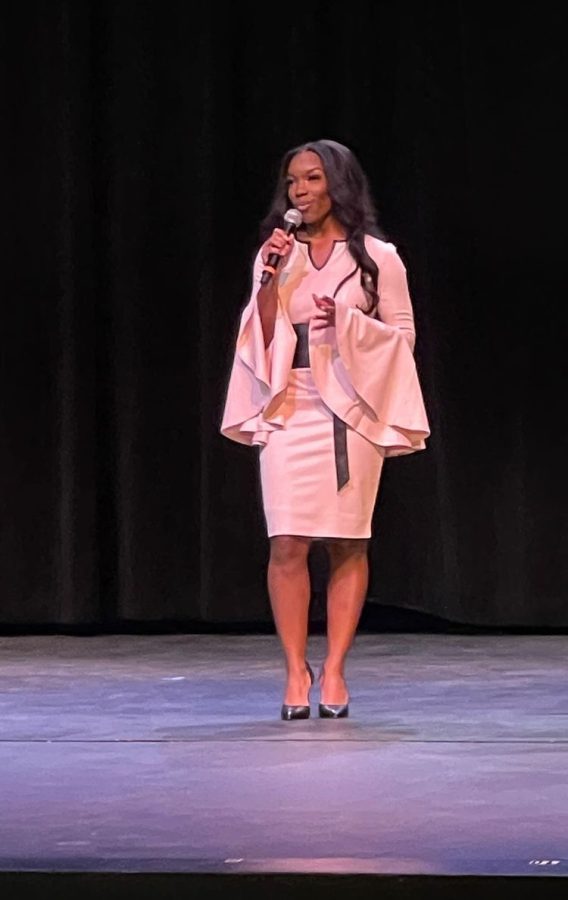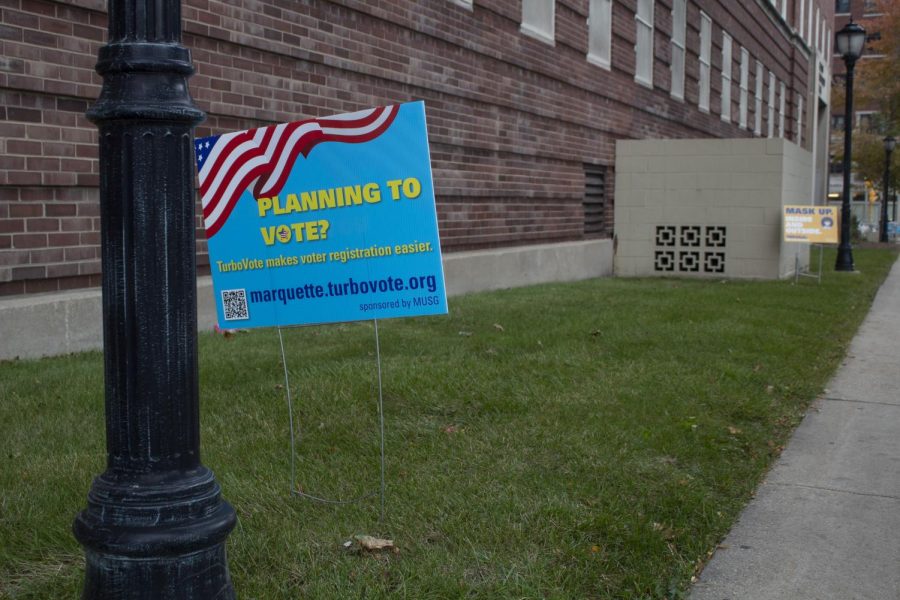The Marquette Law School and the Journal Sentinel’s Don Walker created a fellowship to study the effect a new arena will have on Milwaukee.
The fellowship is part of the Lubar Fellowship, which is a partnership between the Marquette Law School and Milwaukee Journal Sentinel that gives journalists the freedom to report on public policy issues in Wisconsin. It is funded by Sheldon Lubar, a Milwaukee philanthropist and businessman, who donated $2 million to the law school to fund research of public policy issues.
Walker, a Marquette alumnus and Journal Sentinel reporter, is the third Lubar fellow.
As a condition of last year’s sale of the Milwaukee Bucks, the organization must renovate the BMO Harris Bradley Center or build a new arena that meets NBA standards. Plans for a new arena must be in place by 2017 or the NBA has the option to buy the franchise back.
The BMO Harris Bradley Center, which the Marquette men’s basketball team calls home, is the third oldest arena in the NBA. The two teams with older arenas are the Golden State Warriors and the Sacramento Kings. Both have announced plans for a new arena but only the Kings broke ground so far.
“The (Bucks) owners have a very ambitious timetable,” Walker said. “A lot of things can happen between now and 2017.”
There are many obstacles to overcome when building a new stadium, choosing a location chief among them.
The top two potential locations are a vacant lot on the corner of N. 4th St. and Wisconsin Ave. and the University of Wisconsin-Milwaukee’s Panther Arena, formerly known as the U.S. Cellular Arena.
“The site that is least objectionable is on N. 4th and Wisconsin,” Walker said.
The greatest obstacle is funding the project. The previous owner, former Sen. Herb Kohl, and the new owners, Marc Lasry and Wes Edens, each committed $100 million to the new arena. Edens and Lasry have stated that a public tax is necessary to complete the project.
“The greatest obstacle is that there is very strong opposition to any public tax,” Walker said. “Very few stadiums are built without a public tax.”
Marquette may play a role in the future of the arena. University spokesman Brian Dorrington said recently-hired athletic director Bill Scholl will join the Cultural and Entertainment Capital Needs Task Force, which researches funding for the new arena.
Marquette’s financial commitment is yet to be determined. University President Michael Lovell recently said he may seek different streams of revenue in a new arena.
“One of the things that we struggle with at the Bradley Center is we just get gate revenue,” Lovell said in an interview with the Journal Sentinel. “We don’t get parking and concessions. I don’t want to overcommit the university if there are not revenue streams coming back.”
The Journal Sentinel will publish Walker’s findings in a special report next year.

